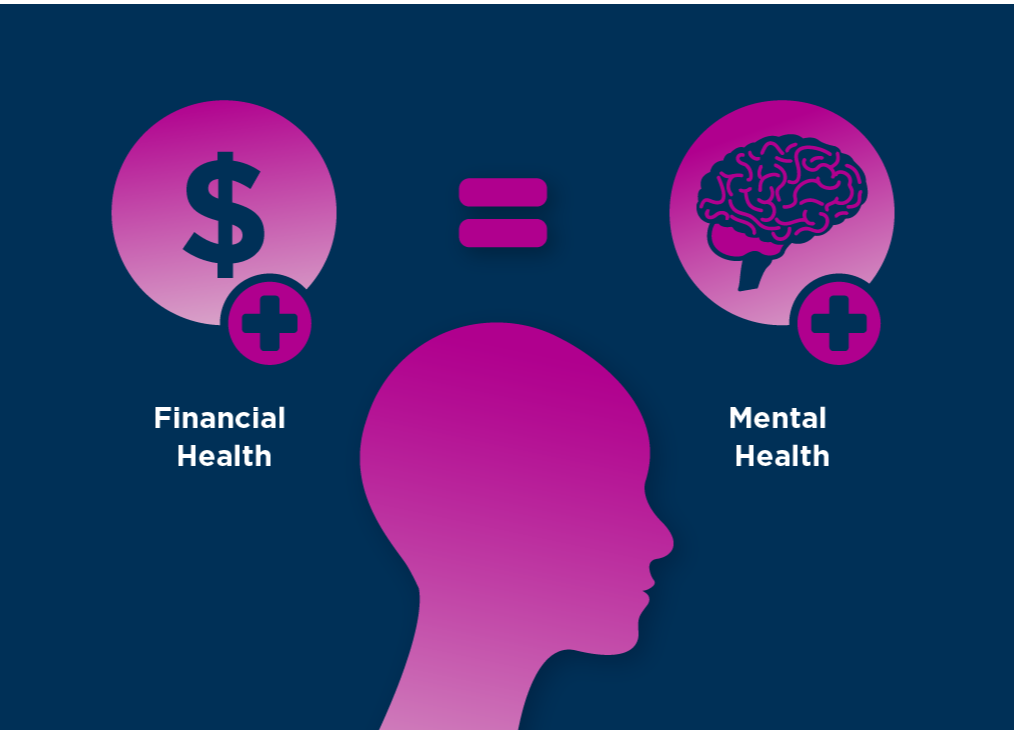Financial health refers to the state of your personal monetary affairs. It includes factors like income, debt, savings, budgeting, and your ability to manage unexpected expenses. A financially healthy person typically:
- Has control over day-to-day finances
- Can absorb a financial shock
- Is on track to meet financial goals
- Has the freedom to make choices to enjoy life
But when financial health deteriorates, it can significantly affect how we think, feel, and function mentally.
The Mental Impact of Financial Stress
1. Anxiety and Depression
Money worries are among the most common sources of stress. Struggling to make ends meet, falling behind on bills, or being in debt can cause constant anxiety, which over time may lead to depression.
2. Sleep Disruption
Financial stress often leads to insomnia or restless sleep. The late-night thoughts of unpaid EMIs or rising costs can keep anyone up, affecting productivity and emotional resilience.
3. Low Self-Esteem and Shame
Being unable to manage finances can affect self-worth. Many people feel ashamed or embarrassed about their financial situation, leading to social withdrawal and decreased confidence.
4. Relationship Strain
Money problems are a leading cause of conflict in relationships. Couples facing financial challenges may argue more frequently or experience emotional distance.
How Mental Health Affects Financial Behavior
It’s not a one-way street. Mental health also influences financial choices.
- Depression can reduce energy and focus, making it hard to track expenses or plan a budget.
- Anxiety may lead to impulsive spending as a coping mechanism.
- ADHD or bipolar disorder can lead to inconsistent spending habits or poor long-term planning.
- Addictions (to shopping, substances, or gambling) often cause severe financial disruption.
Without proper support, mental health struggles can push individuals into poor financial decisions, deepening the cycle of stress and instability.

Breaking the Cycle: Steps Toward Balance
Achieving both financial and mental wellness requires conscious effort. Here's how you can start:
1. Track Your Finances
Awareness is the first step. Use mobile apps or spreadsheets to record income, expenses, and debts. Clarity helps reduce anxiety.
2. Create a Simple Budget
A budget empowers you to control spending and allocate money wisely. Stick to basic categories- essentials, savings, leisure- and track progress monthly.
3. Set Small Goals
Start with manageable steps: pay off one credit card, save ₹1,000 a month, or reduce online shopping. Small wins build confidence.
4. Practice Mindfulness
Incorporate daily habits like meditation, journaling, or deep breathing. These not only reduce stress but improve decision-making clarity.
5. Seek Help Without Shame
Whether it’s a financial advisor or a therapist, professional help can provide structure and emotional support. There’s no shame in asking for guidance- only strength.
6. Build an Emergency Fund
Even a modest safety net can relieve long-term anxiety. Aim to save at least 3 months of essential expenses over time.
Final Thoughts: Heal Both Worlds
Money affects more than our bank accounts- it touches our emotions, relationships, and sense of security. When we actively work on improving our financial health, we also take a vital step toward better mental well-being.
The key takeaway? Financial stability isn't about being rich- it's about feeling secure and empowered. And that feeling is deeply tied to peace of mind.
Remember:
Improving your financial health can be one of the most healing acts for your mental health.


